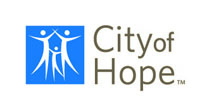
The Federal Trade Commission (FTC) is an independent agency of the United States government whose principal mission is the enforcement of civil (non-criminal) antitrust law and the promotion of consumer protection. The FTC shares jurisdiction over federal civil antitrust law enforcement with the Department of Justice Antitrust Division. The agency is headquartered in the Federal Trade Commission Building in Washington, DC.
Medical tourism refers to people traveling abroad to obtain medical treatment. In the past, this usually referred to those who traveled from less-developed countries to major medical centers in highly developed countries for treatment unavailable at home. However, in recent years it may equally refer to those from developed countries who travel to developing countries for lower-priced medical treatments. With differences between the medical agencies, such as the Food and Drug Administration (FDA) or the European Medicines Agency (EMA), etc., which decide whether a drug is approved in their country or region, or not, the motivation may be also for medical services unavailable or non-licensed in the home country.

Chelation therapy is a medical procedure that involves the administration of chelating agents to remove heavy metals from the body. Chelation therapy has a long history of use in clinical toxicology and remains in use for some very specific medical treatments, although it is administered under very careful medical supervision due to various inherent risks, including the mobilization of mercury and other metals through the brain and other parts of the body by the use of weak chelating agents that unbind with metals before elimination, exacerbating existing damage. To avoid mobilization, some practitioners of chelation use strong chelators, such as selenium, taken at low doses over a long period of time.

The Children's Hospital of Philadelphia, also known by its acronym CHOP, is a children's hospital in Philadelphia, Pennsylvania. Its primary campus is located in the University City neighborhood of West Philadelphia on the campus of the University of Pennsylvania. The hospital has 594 beds and more than one million outpatient and inpatient visits annually. It is one of the world's largest and oldest children's hospitals and the first hospital dedicated to the healthcare of children.

Roswell Park Comprehensive Cancer Center is a cancer research and treatment center located in Buffalo, New York. Founded by surgeon Roswell Park in 1898, the center was the first in the United States to specifically focus on cancer research. The center is usually called Roswell Park in short. The center, which conducts clinical research on cancer as well as the development new drugs, provides advanced treatment for all forms of adult and pediatric cancer, and serves as a member of the National Comprehensive Cancer Network. Roswell Park Comprehensive Cancer Center is as of 2019, the only upstate New York facility to hold the National Cancer Institute designation of "comprehensive cancer center".

Chandler Park is an American physician, medical journalist, and clinical researcher. In June 2021, his cancer research was published in prominent medical journals including the New England Journal of Medicine and Journal of Clinical Oncology. Park also contributes regularly as an expert physician for popular newspapers and magazines such as Newsweek, Reader's Digest, U.S. News & World Report, The Exponent-Telegram, College of St. Scholastica, and Medscape and writes medical news for Doximity.

UC Davis Medical Center (UCDMC) is part of UC Davis Health and a major academic health center located in Sacramento, California. It is owned and operated by the University of California as part of its University of California, Davis campus. The medical center sits on a 142-acre (57 ha) campus (often referred to as the Sacramento Campus to distinguish it from the main campus in nearby Davis) located between the Elmhurst, Tahoe Park, and Oak Park residential neighborhoods. The site incorporates the land and some of the buildings of the former Sacramento Medical Center (which was acquired from the County of Sacramento in 1973) as well as much of the land (and two buildings) previously occupied by the California State Fair until its 1967 move to a new location.

The University Hospitals Birmingham NHS Foundation Trust provides adult district general hospital services for Birmingham as well as specialist treatments for the West Midlands.

City of Hope is a private, non-profit clinical research center, hospital and graduate school located in Duarte, California, United States. The center's main campus resides on 110 acres (45 ha) of land adjacent to the boundaries of Duarte and Irwindale, with a network of clinical practice locations throughout Southern California, satellite offices in Monrovia and Irwindale, and regional fundraising offices throughout the United States.

NYU Langone Health is an academic medical center located in New York City, New York, United States. The organization consists of the NYU Grossman School of Medicine and NYU Grossman Long Island School of Medicine, both part of New York University (NYU), and more than 300 locations throughout the New York metropolitan area, including six inpatient facilities: Tisch Hospital; Kimmel Pavilion; NYU Langone Orthopedic Hospital; Hassenfeld Children's Hospital; NYU Langone Hospital – Brooklyn; and NYU Langone Hospital – Long Island. It is also home to Rusk Rehabilitation. NYU Langone Health is one of the largest healthcare systems in the Northeast, with more than 46,000 employees.
The American Society of Clinical Oncology (ASCO) is a professional organization representing physicians of all oncology sub-specialties who care for people with cancer. Founded in 1964 by Fred Ansfield, Harry Bisel, Herman Freckman, Arnoldus Goudsmit, Robert Talley, William Wilson, and Jane C. Wright, it has nearly 45,000 members worldwide.
OU Health is the combination of OU Medical Center – Oklahoma City & Edmond, the Children's Hospital, OU Physicians, OU Children's Physicians, the University of Oklahoma College of Medicine, and the Peggy and Charles Stephenson Oklahoma Cancer Center. OU Health focuses on improving health by collaboration, searching for innovation and encouraging high performance.

Mercy Medical Center is located in Springfield, Massachusetts. Founded by the Sisters of Providence Health System, Mercy Hospital is a faith-based, non-profit organization serving patients regardless of background or beliefs. Mercy Medical Center is known for its tradition of holistic health care.
High-dose chemotherapy and bone marrow transplant (HDC/BMT), also high-dose chemotherapy with autologous bone marrow transplant, was an ineffective treatment regimen for metastatic breast cancer, and later high-risk breast cancer, that was considered promising during the 1980s and 1990s. With an overall idea that more is better, this process involved taking cells from the person's bone marrow to store in a lab, then to give such high doses of chemotherapy drugs that the remaining bone marrow was destroyed, and then to inject the cells taken earlier back into the body as replacement. It was ultimately determined to be no more effective than normal treatment, and to have significantly higher side effects, including treatment-related death.

Richard J. Stephenson is an American entrepreneur, businessman, and the founder and chair of Cancer Treatment Centers of America (CTCA). He is active in conservative politics.
Eric P. Winer is a medical oncologist and clinical researcher specializing in breast cancer. He is director of Yale Cancer Center and president and physician-in-chief of Smilow Cancer Hospital Yale New Haven Health System, effective February 1, 2022. He also is Deputy Dean for Cancer Research at Yale School of Medicine. From 1997 to 2021, he was the Chief of the Breast Oncology Program at Dana–Farber Cancer Institute in Boston, Massachusetts. Beginning in 2013, he held a range of institutional roles at Dana-Farber, including Chief of Clinical Development, the Thompson Chair in Breast Cancer Research and Director of the Dana-Farber/Harvard SPORE in Breast Cancer. He also served as a Professor of Medicine at Harvard Medical School. He was president of the American Society of Clinical Oncology (ASCO) 2022-2023 and became Chair of the Board in mid-June 2023. His career has been focused on breast cancer treatment and research.
Everett E. Vokes is an American oncologist. He is the John E. Ultmann Professor, chair of the Department of Medicine, and physician-in-chief at the University of Chicago Medical Center. In this role, he pioneered the combination radiation and chemotherapy as first-line treatment for head and neck cancer.
Lori Jo Pierce is an American radiation oncologist and 57th President of the American Society of Clinical Oncology. She is a Full Professor and Vice Provost for Academic and Faculty Affairs at the University of Michigan. Her research focuses on the use of radiotherapy in the multi-modality treatment of breast cancer, with emphasis on intensity modulated radiotherapy in node positive breast cancer, the use of radiosensitizing agents, and the outcomes of women treated with radiation for breast cancer who are carriers of a BRCA1/2 breast cancer susceptibility gene.











